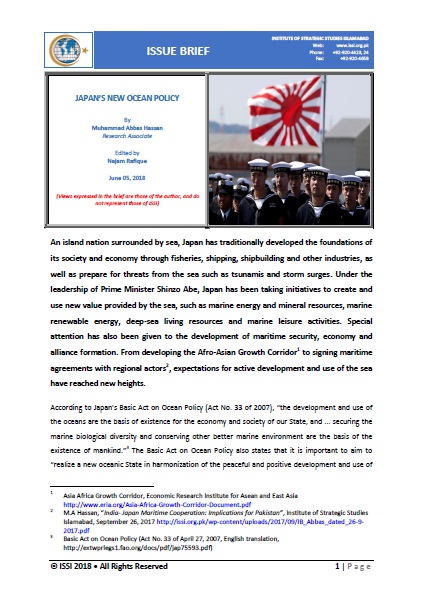An island nation surrounded by sea, Japan has traditionally developed the foundations of its society and economy through fisheries, shipping, shipbuilding and other industries, as well as prepare for threats from the sea such as tsunamis and storm surges. Under the leadership of Prime Minister Shinzo Abe, Japan has been taking initiatives to create and use new value provided by the sea, such as marine energy and mineral resources, marine renewable energy, deep-sea living resources and marine leisure activities. Special attention has also been given to the development of maritime security, economy and alliance formation. From developing the Afro-Asian Growth Corridor[1] to signing maritime agreements with regional actors[2], expectations for active development and use of the sea have reached new heights.
According to Japan’s Basic Act on Ocean Policy (Act No. 33 of 2007), “the development and use of the oceans are the basis of existence for the economy and society of our State, and … securing the marine biological diversity and conserving other better marine environment are the basis of the existence of mankind.”[3] The Basic Act on Ocean Policy also states that it is important to aim to “realize a new oceanic State in harmonization of the peaceful and positive development and use of the oceans with the conservation of the marine environment, under the international cooperation based on the United Nations Convention on the Law of the Sea and other international agreements.”[4]
















